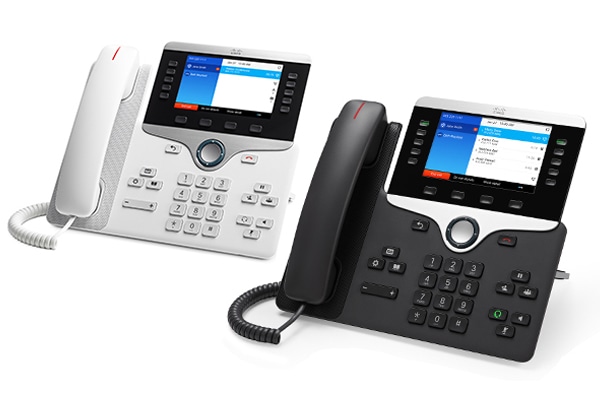Wednesday, August 12, 2015
Retired Certification Exams
Here you can check for the Cisco retired exams.
http://www.cisco.com/web/learning/exams/retired.html
Cisco IP Phone 8811_8841_8851_8861 Administration

Basic Reset
Performing a basic reset of a Cisco IP Phone provides a way to recover if the phone experiences an error and provides a way to reset or restore various configuration and security settings.
The following table describes the ways to perform a basic reset. You can reset a phone with any of these operations after the phone has started up. Choose the operation that is appropriate for your situation.
Operation
|
Action
|
Explanation
|
|---|---|---|
Restart phone
|
Press Services, Applications, or Directoriesand then press **#**.
|
Resets any user and network setup changes that you have made, but that the phone has not written to its Flash memory, to previously saved settings, then restarts the phone.
|
Reset settings
|
To reset settings, press Applications and choose Administrator Settings > Reset Settings > Network.
|
Resets user and network setup settings to their default values, and restarts the phone.
|
To reset the CTL file, press Applications and choose Administrator Settings > Reset Settings > Security.
|
Resets the CTL file.
|
Perform Factory Reset from Phone Keypad
Procedure
mRemoteNG Serial Connection
mRemoteNG Serial Connection
Its is impossible to simply create a serial connection on mRemoteNG ( a least at 1.67 version) so there is a tip to do that.
1 Using Putty Session
- Download putty.exe and copy it so somewhere ( example to "C:\1")
- Open putty.exe, create Serial Connection, and save it.Dont forget to choose baud rate ( example "COM_9600")
- Open mRemoteNG go to external tools (Tools-External Tools), create new external tool ( example "PTTY_9600")
- At the filename write path+filename ( example "C:\1\putty.exe")
- At the argumets write putty.exe -load "CONNECTION_NAME) ( example "putty.exe -load "COM_9600")
- Choose "Try to integrate" Option
- Create new connection and in the protocol filed choose "Ext. App" then External tool "PTTY_9600" ( external tool name)
2 - Using TeraTerm
- install teratem ( i use v 4.70)
- Create external tool, name it ( example TTRM_9600)
- At the filename write path+filename ( example "C:\Program Files\teraterm\ttermpro.exe")
- At the argumets write "ttermpro.exe /BAUD=9600 /C=1"
(/BAUD is baud rate and /C is COM port number)
- Choose "Try to integrate" Option
- Create new connection and in the protocol filed choose "Ext. App" then External tool "TTRM_9600" ( external tool name)
Enjoy!
mRemoteNG FileZilla SFTP
How to integrate FileZilla SFTP support in mRemoteNG.
First open up mRemoteNG then press “tools” and then “External Tools”

Right click and select “New External Tool”

In the External Tools Properties tab, enter the following:
Filename: C:\Program Files (x86)\FileZilla FTP Client\filezilla.exe
Arguments: sftp://%Username%:%Password%@%Hostname%:%port%

After that you should be all set, just right click the connection you want to connect via STFP and FileZilla should automatically open.
First open up mRemoteNG then press “tools” and then “External Tools”

Right click and select “New External Tool”

In the External Tools Properties tab, enter the following:
Filename: C:\Program Files (x86)\FileZilla FTP Client\filezilla.exe
Arguments: sftp://%Username%:%Password%@%Hostname%:%port%

After that you should be all set, just right click the connection you want to connect via STFP and FileZilla should automatically open.
Subscribe to:
Comments (Atom)